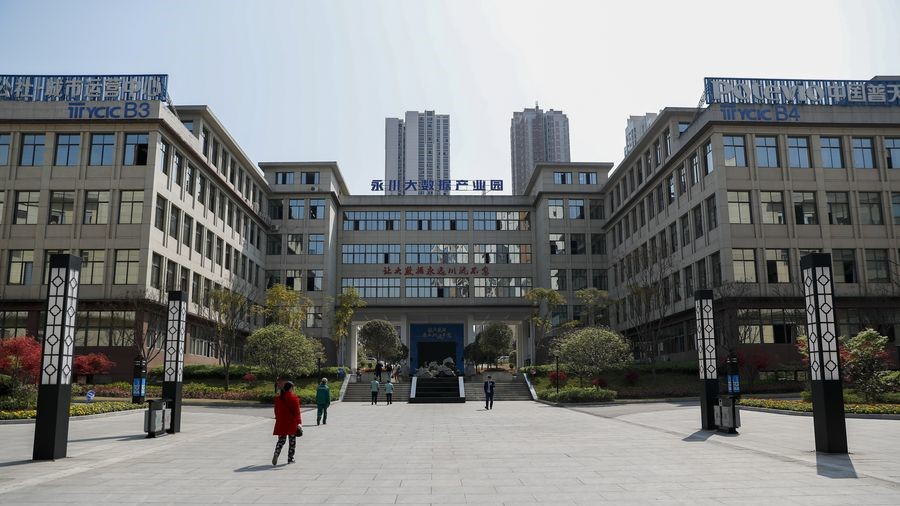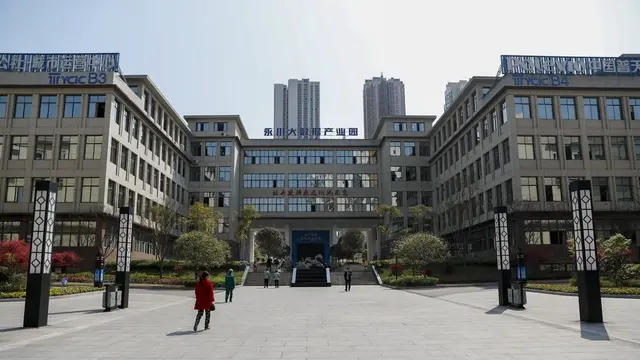
People walk at an industrial park in Yongchuan District of Chongqing, southwest China, March 18, 2020. /Xinhua
Financial entities must resolutely safeguard investor interests, tighten market discipline and observe a "zero tolerance" policy on illegal practices in the capital market, said China's top financial committee headed by Chinese Vice Premier Liu He on Monday.
The State Council's financial stability and development committee, which Liu leads as top economic adviser, held its 28th in Beijing on Monday.
The meeting called for "zero tolerance" on counterfeit behaviors in the capital market, a resolute crackdown on financial fraud, insider trading, market manipulation, and other violations of laws and regulations.
This came after a number of U.S.-listed Chinese companies were found to have engaged in financial fraud, including
coffee chain brand Luckin Coffee
and TAL Education Group.
China's stock market, bond market and foreign exchange market have also generally kept smooth operations despite the turbulent global financial market, the meeting said, noting the importance of reasonable and sufficient liquidity.
However, the meeting pointed out that it is necessary to pay close attention to the risks of some financial products caused by current price fluctuations in the international commodity market. It called on financial institutions to raise risk awareness and strengthen risk management and control.
Amid high uncertainty over the negative impact of the pandemic and economic slowdown, China's financial sector has taken great efforts in supporting the real economy, especially small businesses, according to the meeting.
Both fiscal and financial measures have been harnessed since the start of this year, such as tax and fee cuts, financial support and assistance to help businesses, especially the smaller ones, to overcome the difficulties.
In terms of tax and fee cuts, the value-added tax (VAT) relief was introduced for micro and small-sized enterprises and self-employed businesses. The export tax rebate rate for selected products was raised, while the loss carry-forward period for companies in transportation and hospitality sectors was extended.
Meanwhile, employers' social insurance contributions were temporarily lowered or waived, and payments to the housing provident fund were deferred. Roads and expressways were made toll-free, and electricity and gas rates for enterprises were cut.
These measures, together with the carry-over effect of last year's tax and fee reductions, are expected to lower business costs by 1.6 trillion yuan (about 226.6 billion U.S. dollars).
In addition, part of the 2020 quota of local government special bonds totaling 1.29 trillion yuan was allocated in advance.
In terms of financial support, the three cuts in the required reserve ratio, and re-lending and re-discount provided financial institutions with 3.55 trillion yuan of low-cost capital to issue low-interest loans to businesses. As of the end of March, some 880 billion yuan of principal and interest payments of corporate loans has been deferred.
Additionally, relevant departments have formulated work plans for deepening reforms and replenishing capital of small and medium-sized banks, said the statement, given the fact that small and medium-sized banks are of great significance for serving the real economy and small and medium-sized enterprises.
The meeting also stressed that reform and development must be based on serving grassroots and small, medium and micro enterprises, while enriching capital, solving outstanding problems in small and medium-sized banks in terms of business positioning, corporate governance, and credit costs, and promoting a virtuous cycle of governance structure and business development.
(With input from Xinhua)
 简体中文
简体中文

